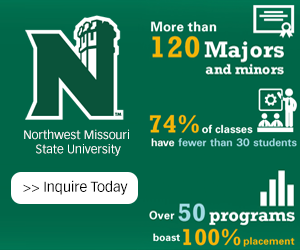International students looking to study broadcasting in the US find themselves with a wide variety of choices in majors. Broadcasting programs can be stand-alone, or they can be included as concentrations within a school's majors such as radio & television or communications. Additionally, the scope of study within broadcasting itself is vast, with the opportunity to learn techniques both in front of and behind the camera, and broadcast media ranging from television to radio to the web.
Broadcasting is an exciting field of study for international students, but because of the many names broadcasting can go by just choosing your broadcasting school in the first place can be a frustrating experience. Read on for some tips and tricks that will help you sort your Digital Media Studies from your Broadcast Journalism and everything in between to find a broadcasting school that's the best fit for you!
Look for the Right Keywords
The first major to look for when choosing your broadcasting school is, naturally, “broadcasting.” However, this will hardly cover all the schools that offer broadcasting as an area of study. Many of the top broadcasting schools in the US will pair the word “broadcasting” with related words to create majors such as “broadcasting and digital media,” “broadcasting communications,” and so on. In these cases it is very important to research the available courses and required curriculum to make sure that the program focuses on your intended area of interest; for example, an aspiring TV reporter would not be well served by a “broadcasting and digital media” major that focuses mostly on broadcasting over the web. While program titles like these can be a trap to unknowing international students only keying into the “broadcasting” part of the name, to well-prepared and informed students they become a tool that helps people find a broadcasting school that caters to their specific wants.
“Broadcast journalism” is perhaps the most common instance of “broadcasting” paired with another term, and it represents one of the more specialized ways you can study the field of broadcasting. Just be aware that, as indicated by the extra word, this major tends to focus on gathering, synthesizing, and delivering news more than it focuses on the technical side of the field.
Be General
But choosing your broadcasting school by simply searching for “broadcasting,” even paired with other keywords, still keeps your hunt too narrow and limits your options. Especially if you're not satisfied with the schools you've already found with the above strategies, consider looking for broadcasting as a specific concentration within a more general major.
Your best chance of finding a broadcasting program nestled within a larger major is in the “communications” major. As communications is a vast area of study, many communications schools not only offer but require you to pick an area of emphasis. These can be similar or identical to the broadcasting major names mentioned above – “broadcasting and digital media,” etc. – or they can be something less obvious, like “communications and new media,” that nonetheless includes a heavily broadcast-centric curriculum. As before, research the programs' curriculum and you may be surprised by what options can open up to international students studying broadcasting. You could even find a broadcasting school that gives you a great education in the field without the word “broadcasting” showing up once in the school, major, or emphasis names!
Branch Out
Other majors likely to offer broadcasting coursework are thoser involving radio, television, and/or film. Like broadcasting itself, these majors vary quite a bit in their exact names, and they may or may not offer a significant enough amount of coursework in broadcasting to actually make it available as a concentration. The broadcasting studies in a radio/television/film major can also be very heavy on the technical side, so if you're interested in on-camera work you should again inspect the full program very carefully before committing to that major.
With the different types of offerings and all the verbiage flying around, just honing in on the programs that offer some sort of broadcasting education can be difficult. Remember to broaden up your search options and do thorough research on the programs you find and you'll be well on your way to choosing a broadcasting school!

